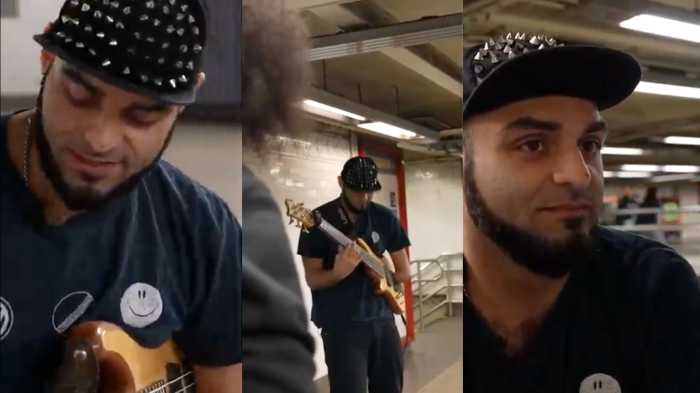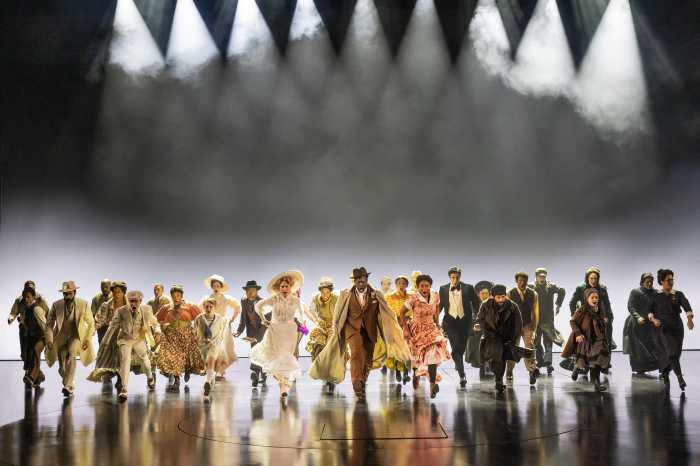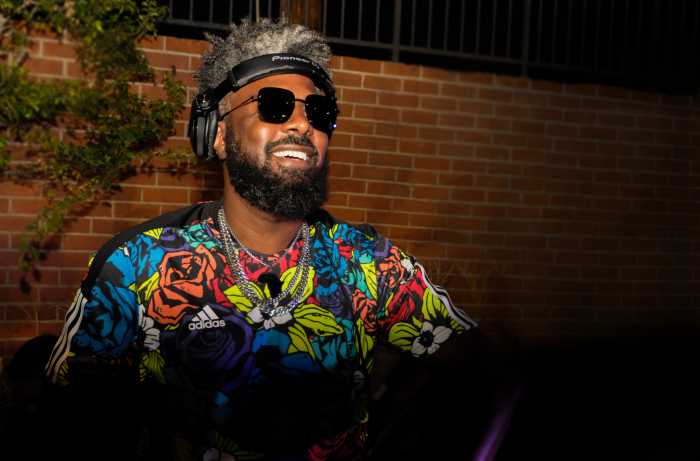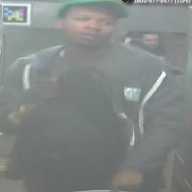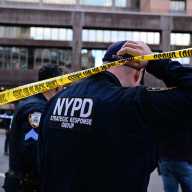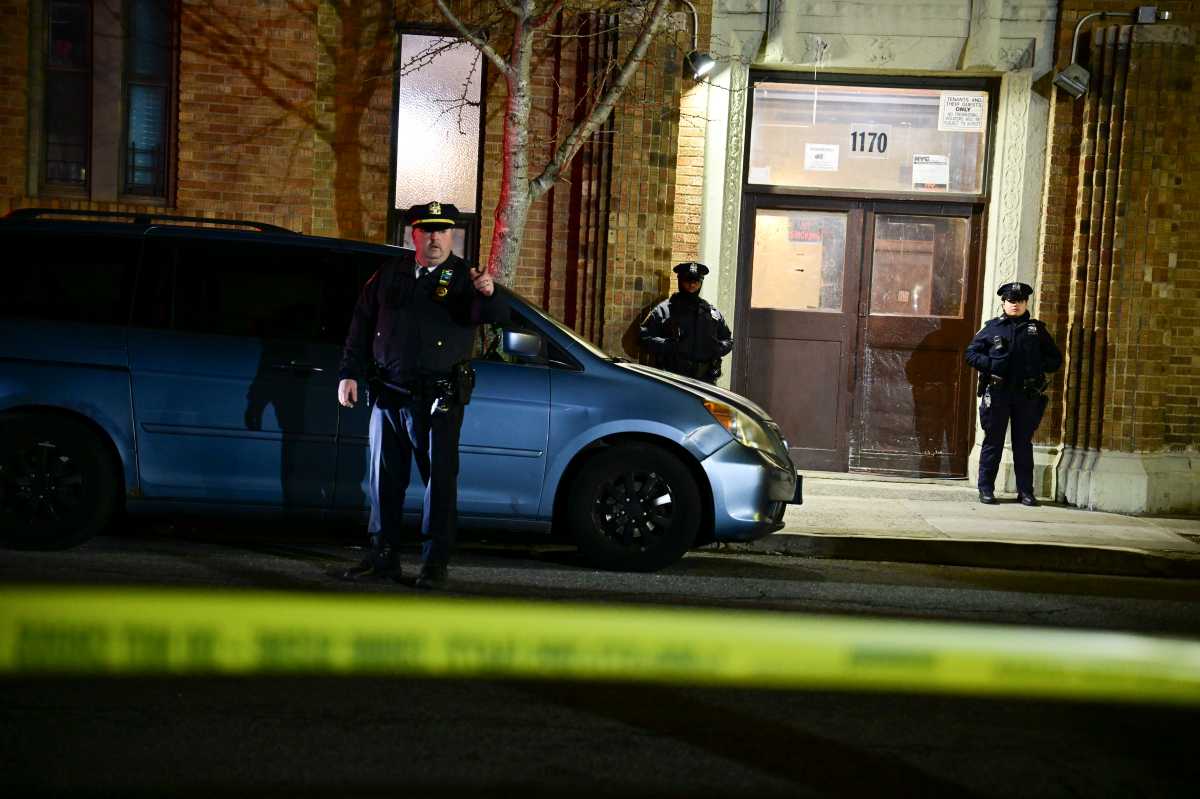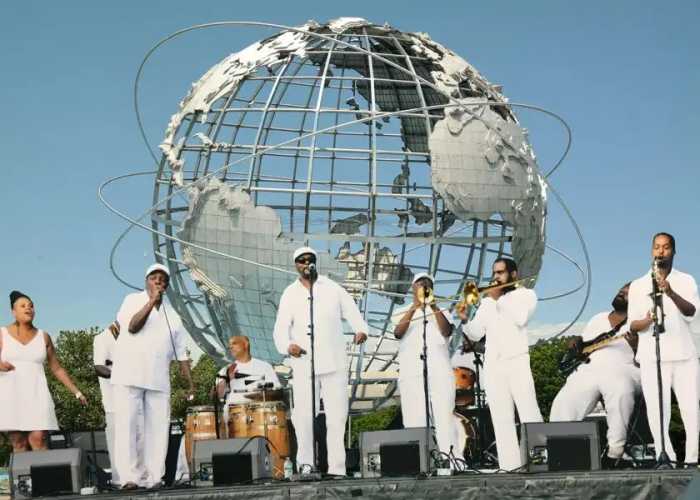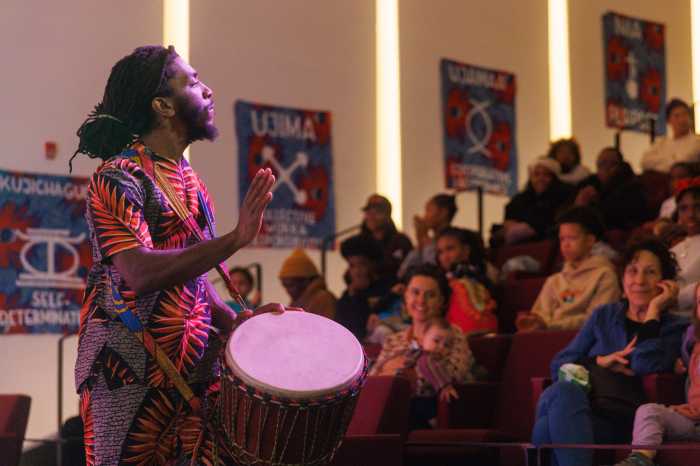Austin Bunn, praised by author Sam Lipsyte as a writer of “heart, danger, precision and music,” has penned a stunning and subversive new collection of stories, “The Brink.” Lipsyte hailed the “brazen, poignant debut” for taking the reader to wondrous, terrifying and funny places.
Bunn, 42, an assistant professor of dramatic and screen writing at Cornell University, also co-wrote the screenplay for the 2013 movie, “Kill Your Darlings” starring Daniel Radcliffe, and lives with his partner, the film producer Bob Hazen, in Astoria.
Bunn will be reading from and discussing his new anthology at Book Culture, 450 Columbus Ave. at 7 p.m. Tuesday (Sept. 22), with essayist Leslie Jamison.
There is also an HBO television show called “The Brink”: Coincidence?
The book and television show have nothing to do with each other! The real mystery to me is why no one used this title before. The show is about geopolitical brinkmanship and my book is more, well, one reviewer called it “pre-apocalyptic”- what happens before the massive explosion. I’ll take it!
Some of your stories involve gay characters or touch on themes of same sex love or attraction but they are not remotely reverential and often hilarious. Is it a sign of progress that gay writers no longer need to be earnest about same sex attraction and love?
Yes! For sure! Great books were written in the periods when being gay was illegal and prosecutable, but younger people have an appetite for different kinds of stories. HIV and AIDS required people to be honest and bold about intimacy and what it meant. Front and center now is being more irreverent. There is a lot more acceptance now but the next frontier is internalized homophobia: making peace with ourselves and who we really are. The best gay writers have always had a freedom to explore all aspects of sexuality: For us, it’s a place of emancipation and political energy.
Did you ever go to one of those earnest gay kumbaya retreats as described in “Curious Father,” where “men go outside to get inside”?
No, but I had a boyfriend who did: Every gay person goes through that process of working it out, and he had no one in his world who was supportive. The most autobiographical story in the collection is “How to Win an Unwinnable War.” My father did a lot of things — he was a teacher, a limo driver, a security guard and a house painter. When my parents got divorced I took one of those classes in nuclear warfare for gifted children. The point, of course, was that there was no way to win a nuclear war. And we had a kid in that class with cystic fibrosis who was kind of a jerk: I wanted to make a story out of that situation and show how every character is flawed, but also has strengths.
So many of your stories — a father finding his daughter’s dead baby in the basement, a honeymooning couple discovering that the supposedly idyllic island they’re on is a target of terrorism, a couple in a cult deciding whether to commit suicide — seem inspired by real life events. What is the role of the news in your fiction?
“The Worst You Can Imagine Is Where This Starts” was inspired by a story I read in West Michigan about a father who found a dead baby in his basement and reported it. His daughter, though, was eventually jailed for infanticide. I was an intern for Newsweek and worked at the Village Voice in the late 1990s and wrote for other places. I love journalism and I love the real world. Journalism is very good at inhabiting all the facts, but doesn’t permit the psychology of the ‘why’ as fiction can. Some magazine published pictures of all the people who died in the Heaven’s Gate mass suicide. They were all these forty-something people — but two of them were young. I just started wondering: What if these two people were involved and their affection for each other was at war with the tenets of the cult? That became (the story) “The End of the Age is Upon Us.” But like any good journalist, I love research. A story like this writes itself if you do the research! All those sermons of (cult leader) Marshall Applewhite are still on line. The facts and what happened there are more crazy and delightfully weird than anything I could have invented.
The Internet has made research easy but is also thought to have eroded our appetite for reading books.
Most people prefer to pick up their phone to reading a book. But there is a lot of reading going on in the Internet in memoirs and blogs, for example. One of the advantages of the short stories in my book is they’re very fast reads, and hopefully entertaining: I’m hoping they might lure people who might not pick up a big, heavy book into reading. It’s a paperback — Harper Perennial only does paperbacks — so it’s light. We really need to be ambassadors to literature; introduce people to the right books to get them hooked.
Is it possible to make a living writing short stories?
Were it to be so! Short stories especially are really a sort of nonprofit hobby I find myself unable to give up. The people I know who are just prose or poetry writers all have teaching jobs. Some writers can live off their novels. The authors who wrote the Divergent and The Hunger Games books can do so — their novels were actually doing really well even before the movies — but the number of those people is equivalent to the number of people who win the lottery. That’s OK with me, though, because writing alone is not a rich enough life. I’m now coproducing a short film, “In the Hollow,” a kind of documentary hybrid, about this notorious shooting of two women (in a hate crime that left one woman dead and her partner severely injured) in 1988. It’s making the film festival circuit right now. You don’t make a lot of money, but you win a prize!
You write films, too.
Fiction is for presenting an inner life, but film is not good for that: Film has more to do with action and spectacle. I like both — I’m a moving target that way. Lots of creative people are drawn to more than one form.
Your stories are imbued with a lack of orthodoxy, yet manage to contain believable surprise and “aha” payoffs. “When You Are the Final Girl” seems to be horror story about a girl who will be raped and possibly killed; then you flip the script and take us some place far more poignant, surprising and sad than where we thought we were going.
I’m very, very touched. That is exactly what I was hoping readers would experience. It’s two plots. Horror stories always have these dual plots: One is: The monster is going to kill the girl! The other is: What made the monster? This is what about what made that scar. Ethan Canin taught a class I had in grad school and talked about dilating time. I just kept dilating the moment before the (protagonist’s auto) accident to get to his motivation.
Do you have a theory on what a story should deliver?
One of the things that obsesses me is range: How much can one writer reflect? I never wanted to be the kind of writer who tills the same ground over and over. My mother is a language teacher and I’m fascinated by voice. I like range, voices, topicality and American life: Covering all the ways people make their lives work. A good story for me has to do with a person encountering a crisis and making a choice. It involves transformation: the choice to be a different kind of person or not. But that is one of the hardest things! How many moments of absolute change are there in life? Stories should move us. So there needs to be a climactic decision about something important.



